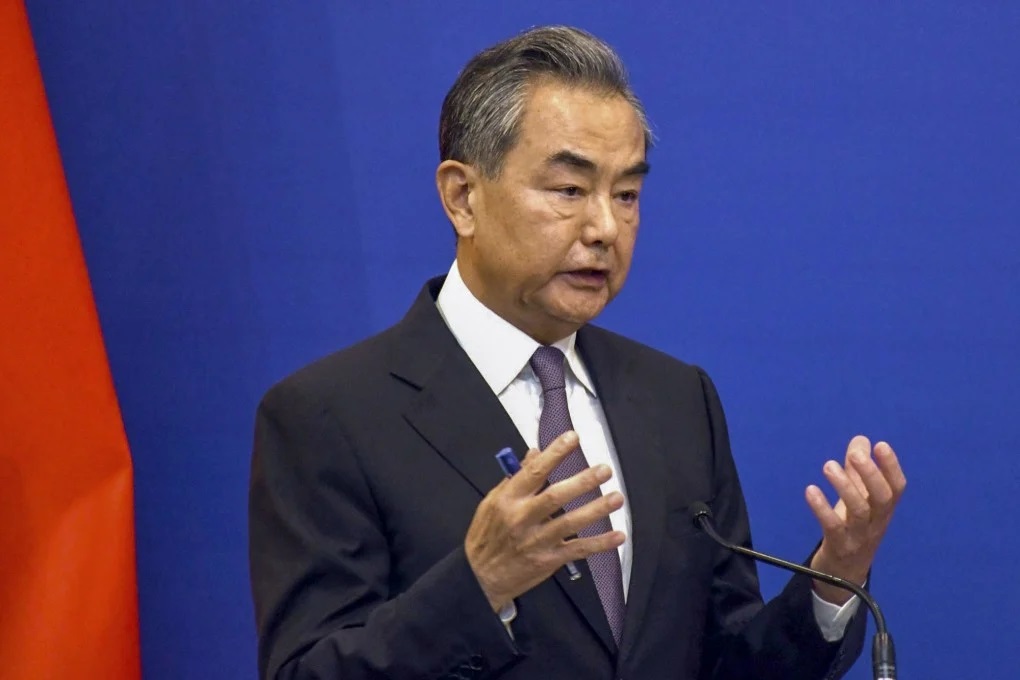China is hosting a significant in-person summit in the coastal city of Xiamen with representatives from 11 Pacific Island nations, aiming to strengthen trade ties.
It describes this move as a push toward building a “closer community with a shared future.”
According to al-jazeera, marks the third such meeting between China and the Pacific Islands, but it is the first to be held on Chinese soil.
The two-day gathering, is being chaired by Chinese Foreign Minister Wang Yi.
Leaders and top diplomats from Kiribati, Niue, Tonga, Nauru, Micronesia, Solomon Islands, Vanuatu, Papua New Guinea, Cook Islands, Fiji, and Samoa are in attendance.
The meeting’s agenda includes discussions on trade, infrastructure development, poverty alleviation, sustainable development, and climate change.
These issues are supposedly of particular concern to these small island nations.
Reporting from Beijing, Al Jazeera’s Katrina Yu noted that the summit presents an opportunity for China to enhance its influence in a region where U.S. engagement has notably waned in recent years.
She pointed out that Pacific Island nations are increasingly aligning with China on key issues such as investment, infrastructure, trade, and even security assistance.
The summit takes place at a time of heightened global uncertainty, particularly stemming from shifts in U.S. foreign policy.
Former President Donald Trump’s administration had significantly reduced foreign aid and threatened tariffs, contributing to a sense of instability.
Analysts argue this retreat by the U.S. has created a power vacuum that China is eager to fill.
Tess Newton from the Griffith Asia Institute remarked that the unpredictable nature of U.S. engagement makes it a difficult partner for long-term cooperation.
In contrast, China has projected an image of reliability and continuity.
“China can say, ‘We were here yesterday, we’re here today, and we’ll be here tomorrow,’” she said.
The Chinese foreign ministry, in a statement ahead of the meeting, emphasized its aim of fostering deeper cooperation.
It also emphasized its aim of building “an even closer China-Pacific Island countries community with a shared future.”
Analysts interpret this ambition as a broader plan to increase China’s economic assistance, diplomatic presence, and security cooperation in the region.
China’s involvement in regional security has already taken tangible form.
In 2022, Beijing signed a security agreement with the Solomon Islands.
This came shortly after deploying police personnel to the capital, Honiara, in response to civil unrest.
Since then, Chinese advisers have been sent to both Vanuatu and Kiribati, and Beijing is reportedly seeking similar security pacts with additional Pacific Island countries.
Mihai Sora, director of the Pacific Islands Program at Australia’s Lowy Institute, said that China is positioning itself as a legitimate security player in the region.
It is supposedly doing so, in part, by offering policing support and responding to national security needs.
He added that the Xiamen summit allows China to shape the narrative and outcomes “on its own turf, in its own space, and on its own terms.”
Another topic likely to surface at the summit is Taiwan.
China claims the self-governing island as part of its territory and has actively worked to diminish Taipei’s diplomatic recognition globally.
Over the past few years, several Pacific nations have switched their allegiance from Taiwan to Beijing, including Nauru in early 2024.
Currently, only three Pacific nations – Marshall Islands, Palau, and Tuvalu, maintain formal ties with Taiwan.
Yu emphasized that the Pacific region, holds immense strategic value for China.
The Pacific region is home to small nations with limited economic and population size (only Papua New Guinea has more than one million residents).
Key global shipping lanes, deep-sea communication cables, potential undersea mineral resources, and strategically located ports all contribute to Beijing’s interest in deepening its footprint in the area.
From a military standpoint, the Pacific Islands’ proximity to the U.S. and Australia enhances their importance in any future regional conflict.
In the event of rising tensions, these islands could play a role in launching or defending against strategic military operations.
As China and the U.S. continue to vie for influence in the Indo-Pacific, the outcomes of this summit, analysts say, could have long-term implications for the region’s political and security dynamics.







